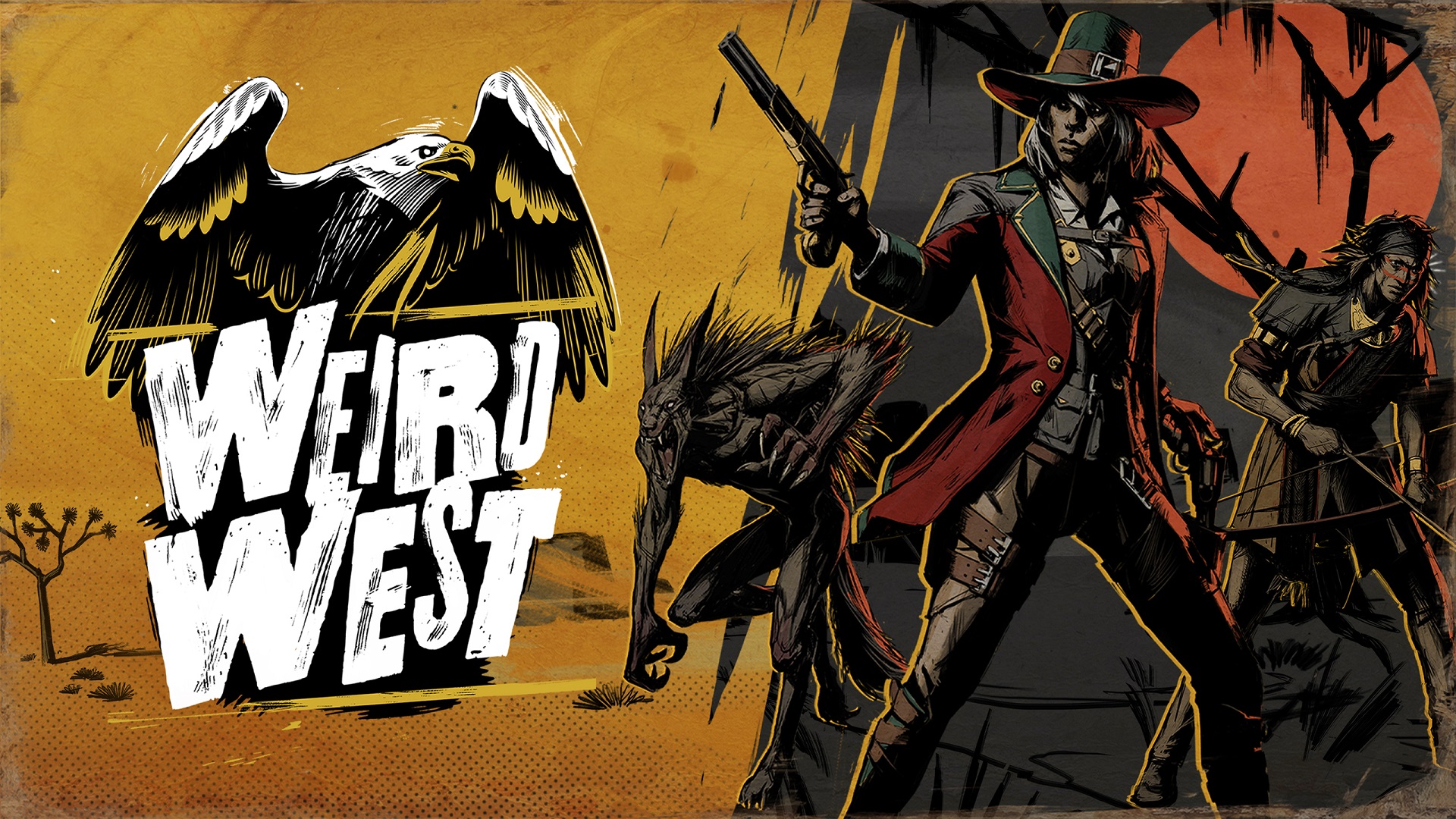
Starting off our Weird West review, it’s worth mentioning this is the first game from Wolfeye Studios, an independent video game studio founded by ex-Arkane devs who worked on titles like Dishonored and Prey.
Their action RPG takes some inspiration from both titles, as well as classic CRPGs like Wasteland and Planescape: Torment, but it also offers a unique experience and world of its own. And despite some glitches and general clumsiness that could be expected from a debut title made by a small team, Weird West is a fascinating and fully-realized experience that’s worth your time.
Weird West
Developer: Wolfeye Studios
Publisher: Devolver Digital
Platforms: PC, Playstation 4, Xbox One
Release Date: March 31, 2022
Price: $39.99
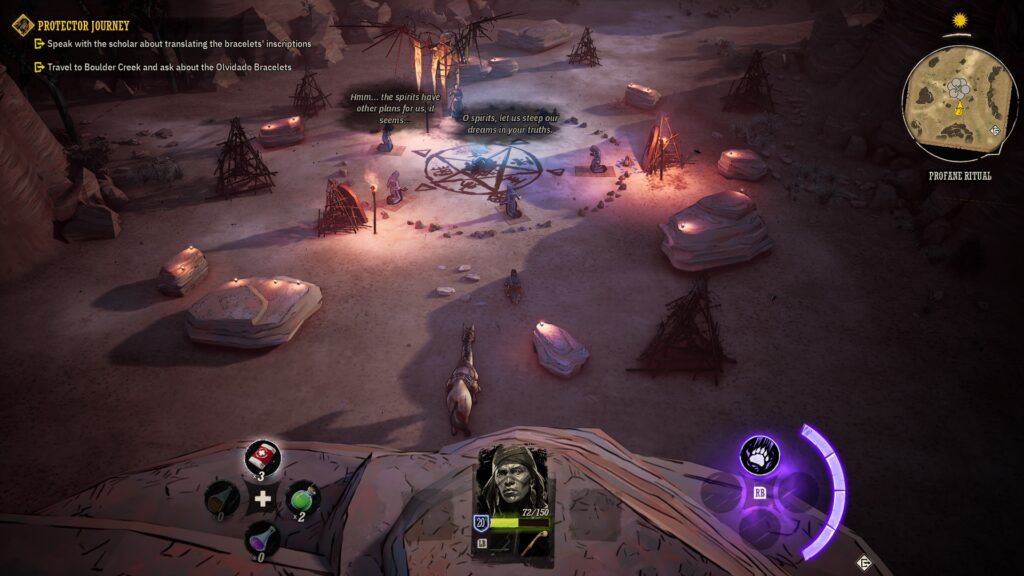
As its name implies, Weird West takes place in a bizarre facsimile of the wild west, with ranchers, miners, gunslingers, outlaws, and natives. But there’s a supernatural twist to this unforgiving land: shapeshifting cannibals, human-animal hybrids, zombies, ghosts, werewolves, wendigos, witches, and a mysterious cult at the center of it all.
Your role in the story is to walk in the shoes of five unusual heroes, making pivotal decisions in high-stakes stories that change the world while working toward a larger purpose.
The game itself is a top-down RPG with action elements. Character progression is simplistic: role-specific skills are unlocked with one set of collectibles, while another set upgrades stats that apply to all characters. You can also upgrade your weapon abilities, as well as the weapons themselves, for more impact during combat.
But even with fully upgraded weapons and abilities, combat is sluggish due to limitations in Weird West’s firearm technology. Movement and aim speed is slow; you may have an easier time using a mouse and keyboard over a controller. Most of your weapons have small magazines and are slow to reload, although you can speed up these processes with the aforementioned upgrades.
I played through this game with a controller, which felt awkward when aiming for the first few hours of play— even with the generous aim assistance. In my opinion, the experience would be much more enjoyable if the combat were turn based or even hybrid turn based like the Baldur’s Gate or Dragon Age series. The closest thing this game offers is a slowdown when switching weapons or choosing abilities, reminiscent of the recent Doom titles.
Health recovery is mostly managed with instantly consumable pickups, with the exception of costly bandages. Recruiting one or two followers can help you survive the many violent scenarios and random encounters that accompany your adventures. Alternatively, you can also circumvent many combat encounters by taking the stealthy route, or by using environmental hazards to gain the upper hand when outnumbered. I had the most fun approaching combat in this way; it allowed me to see the intricate systems Wolfeye Studios constructed to simulate a living world.
At one point, I accidentally caught on fire walking into a campfire and had to roll to put myself out. Vultures that circle the desert will swoop down to feed on corpses, and barrels will fill with drinkable water during rainstorms. Lamps can be shot to start fires, water can be spilled to make lightning traps, and wild animals or feral creatures can be pitted against enemies. There are lots of unique ways to manipulate the environment, and the quicksave/quickload feature makes it safe for you to experiment with different tactics.
Playing around with these systems makes for great emergent storytelling moments. For example, I spent an hour wandering around a witch dungeon looking for a way to open the locked gate to the objective, when I reached the conclusion that I would need to return to town halfway across the world map to get one lockpick in order to meet the 5 pick requirement. There were no lockpicks found in the dungeon despite being necessary to advance, and every single enemy respawned once I returned.
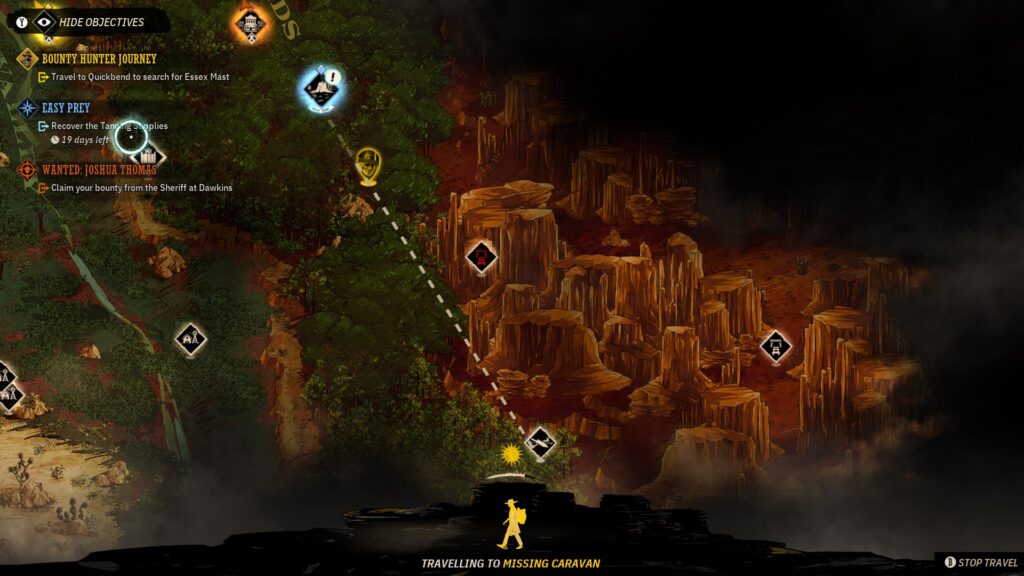
This was frustrating at first, but it gave me a chance to try an alternate entrance to the dungeon that was full of explosive cave dwellers. This approach ended up killing most of the enemies by pitting them against each other. Thanks to the numerous possibilities for approach in levels like this — especially during the second half of the game — Weird West has a high replay value and is rife with possibilities for gimmick runs, challenge runs, and speedruns.
That being said, Weird West’s old-school CRPG camera angle is infuriating and detracted from my experience. Some manipulation of camera angles are supported, but the inability to lower the camera past a certain point meant that vital information was constantly at the edges of the screen during my playthrough. This wasn’t a big deal when playing on a large TV screen, but it caused me to strain my eyes on a smaller monitor.
Combined with the inability to expand the minimap found in the top right corner, this camera also makes it very difficult to find specific vendors in towns. Additionally, I noticed an annoying vignette effect when the camera clips through the walls in caves that severely limits visibility, which caused even more eye strain. However, none of this stopped me from wanting to continue playing, because the story and setting were strong enough to keep my attention throughout the 20 hour runtime.
Weird West’s narrative framing is interesting and engaging. Completing one character’s journey and moving onto the next makes you want to stick around and see what happens next and how the world reacts to your choices. In this respect, it’s much more structured than a simple open world setting, so it provides a better perspective on the setting and worldbuilding.
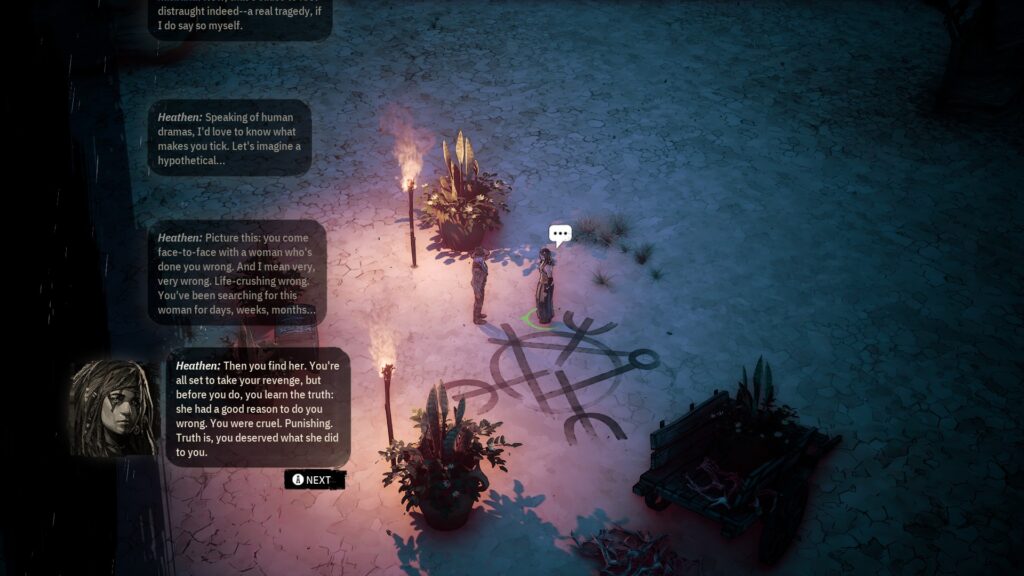
On the subject of worldbuilding, Weird West is fantastic— with some help from industry legend and walking stretch goal Chris Avellone. You’re also required to take an active part in the lore of The West by making multiple choices during each character’s story. Some are simple moral or ethical dilemmas, while others are more challenging— but all of them have an impact on your experience. In particular, the choices made in the second and fourth chapters are the most interesting and will have the most substantial effects on your experience for the rest of the game.
However, there was one ethical dilemma presented in the first chapter of the game that felt clumsy and out of place with the setting created by Wolfeye Studios. Without giving away too much, the game attempts to present you with a difficult choice based on the grounds of identity politics. It’s almost always awkward and heavy-handed when games attempt social commentary, but there’s a reason why this specific attempt rubbed me the wrong way.
Aside from the supernatural elements, there’s another way this dark fantasy reimagining feels different from traditional depictions of the wild west in movies and television. This by no means a John Wayne or Clint Eastwood style manifest destiny setting. Ample representation of women, Asians, natives, Hispanics, and people of color can be found in The West, including a copper mine staffed almost entirely with women and an outlaw gang with multiple women lieutenants. In this kind of setting, minority based identity politics have less sting— and by presenting a moral choice that appeals to progressive politics from the real world, it feels like this game wants to have its cake and eat it too.
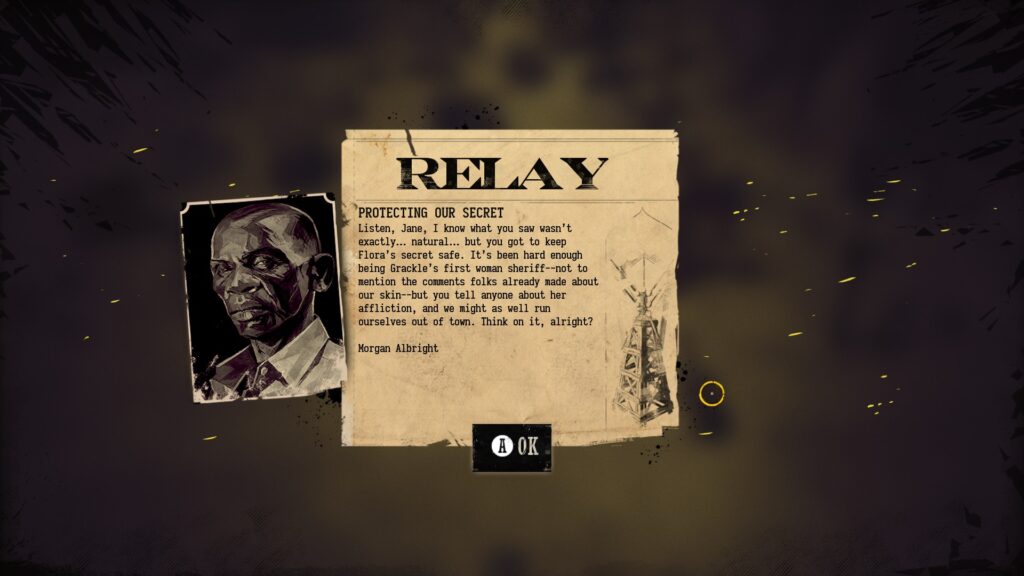
However, the native storyline is much more fleshed out, respectful, and a far better fit with the setting, thanks to the fact that Wolfeye Studios consulted a native tribe when writing it. There’s even an amusing side quest where you can recover stolen land, but it’s not in-your-face about it or anything. I only realized the implication of what I did after finishing the mayor’s hacienda in the third chapter— which was also one of the best-designed stealth sections in the game.
At the end of each chapter, the game shows you a bulleted list of the choices you made in much the same way as the episodic games from Telltale. However, the initial user agreement you’re required to accept before starting the game states that Wolfeye Studios wants to collect your IP address and location for up to 3 years so they can track what choices you make in game and compare them to other players. They pinky swear to keep this data safe from hackers, but it would be much more considerate to allow players the option to opt out of sharing their data. In any case, you may be able to avoid this by playing in offline mode.
Once I made my final choices and watched the end cutscene after about 20 hours of play, I immediately wanted to start a new playthrough and see what happens when I make the opposite choices and complete all the side quests. And to me, that seems like the sign of a good game; if you disagree, I’ll put you under snakes.
Weird West was reviewed on Windows PC using a copy provided by Devolver Digital. You can find additional information about Niche Gamer’s review/ethics policy here.